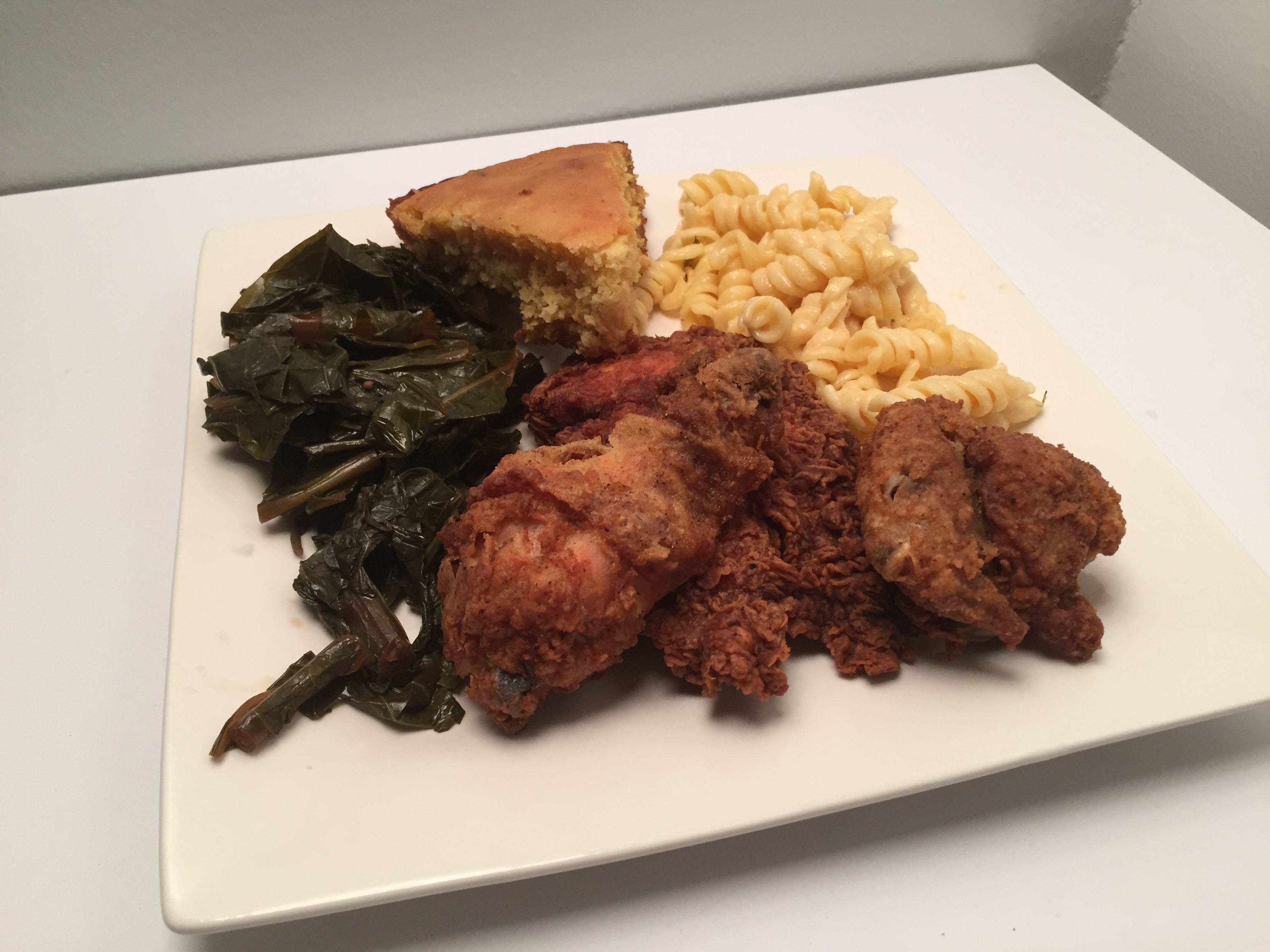
Soul food
Soul food is the ethnic cuisine of African Americans.[1][2] It originated in the American South from the cuisines of enslaved Africans trafficked to the North American colonies through the Atlantic slave trade during the Antebellum period and is closely associated (but not to be confused with) the cuisine of the American South.[3] The expression "soul food" originated in the mid-1960s when "soul" was a common word used to describe African-American culture.[4] Soul food uses cooking techniques and ingredients from West African, Central African, Western European, and Indigenous cuisine of the Americas.[5]
For other uses, see Soul Food.
The cuisine was initially denigrated as low quality and belittled because of its origin. It was seen as low-class food, and African Americans in the North looked down on their (formerly) Black Southern compatriots who preferred soul food (see The Great Migration).[6] The concept evolved from describing the food of slaves in the South, to being taken up as a primary source of pride in the African American community even in the North, such as in New York City.[7]
Soul food historian Adrian Miller explains the difference between soul food and Southern food is that soul food is intensely seasoned and uses a variety of meats to add flavor to food and adds a variety of spicy and savory sauces. These spicy and savory sauces add robust flavor. This method of preparation was influenced by West African cuisine where West Africans create sauces to add flavor and spice to their food. Also, Black Americans add sugar to make cornbread, while "white southerners say when you put sugar in corn bread, it becomes cake...".[8] European immigrants seasoned and flavored their food using salt, pepper, smoke, and pickling spices. African Americans add more spices, and hot and sweet sauces to increase the spiciness, or heat of their food.[9] Bob Jeffries, the author of Soul Food Cookbook, explains the difference between soul food and Southern food: "While all soul food is Southern food, not all Southern food is soul. Soul food cooking is an example of how really good Southern [African-American] cooks cooked with what they had available to them."[10]
Impoverished white and Black people in the South cooked many of the same dishes stemming from Southern cooking traditions, but styles of preparation sometimes varied. Certain techniques popular in soul and other Southern cuisines (i.e., frying meat and using all parts of the animal for consumption) are shared with cultures all over the world.[11]